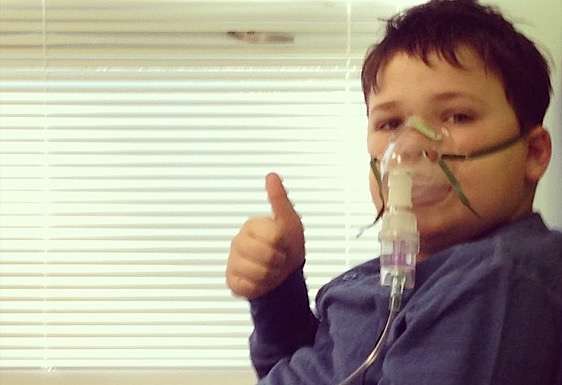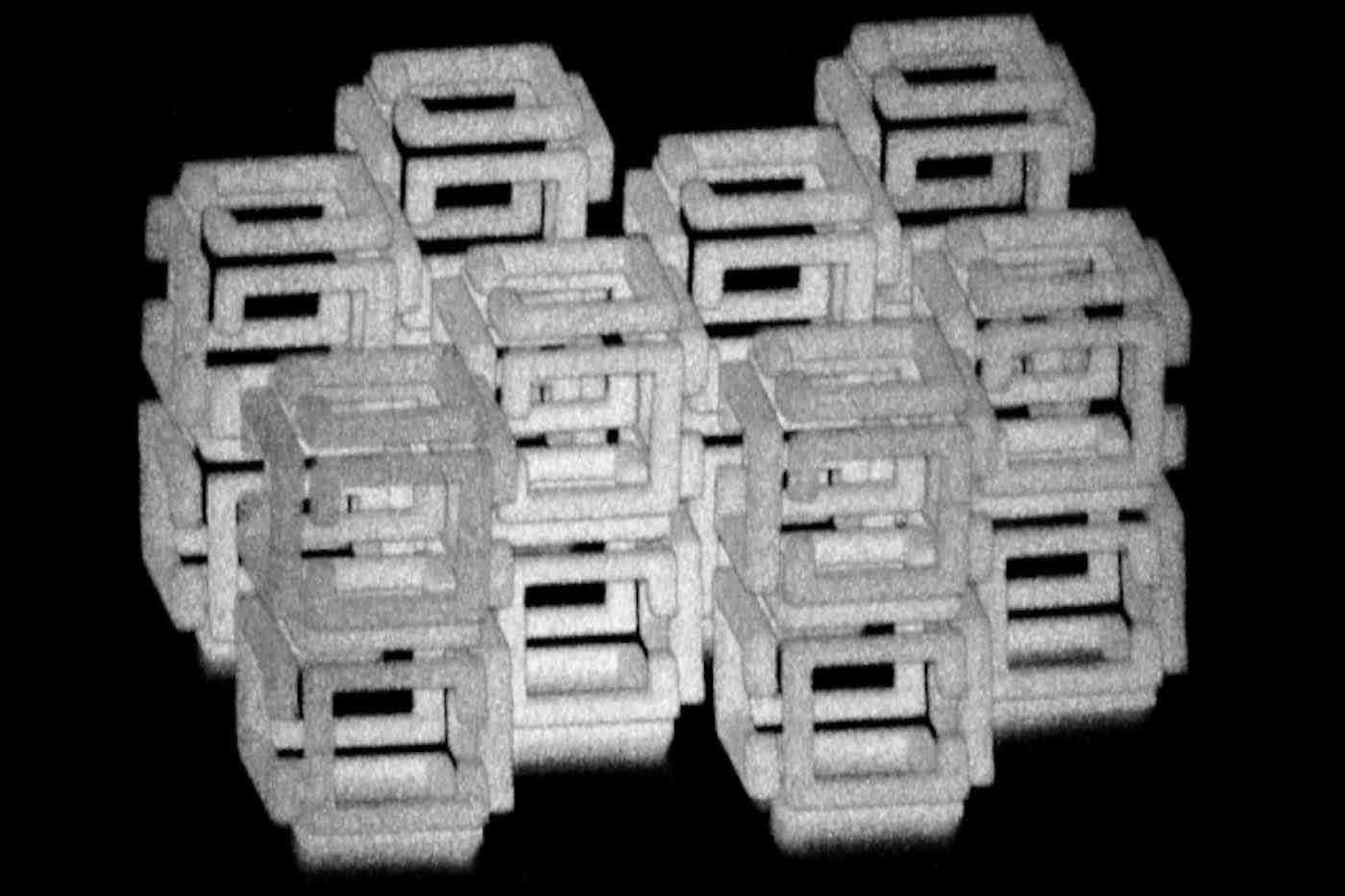Asthma Could Be Cured Within 5 Years With This New Breakthrough
Scientists think they may have a cure for asthma, now that they've discovered a "switch" that can turn off the condition, and thus, the symptoms.

Scientists think they may have a cure for asthma, now that they've discovered a "switch" that can turn off the condition, and thus, the symptoms.

After its successful assessment and approval, this "ground-breaking" procedure is expected to halve the amount of people waiting for liver transplants.

A new USC study suggesting dementia is caused by leaky blood vessels in the brain could lead to earlier diagnosis and treatment.

"There are all kinds of things you can do with this," says the researcher, adding that the technology "could open up frontiers we can't yet imagine."

Researchers at the University of Bedfordshire have developed a new technique for powering electronic devices that could radio waves to eventually eliminate the need for conventional batteries.
Researchers trying to find a way to treat multiple sclerosis think they've come up with an approach that could not only help patients with MS, but those with a range of so-called autoimmune diseases, from type-1 diabetes to psoriasis, and perhaps even food allergies. So far it's only worked in mice, but it has worked especially well.
Surgery may soon be a thing of the past for breast cancer patients, thanks to a new technique that destroys tumors by freezing them. A supercooled needle tip is repeatedly inserted into the cancerous tissue to turn it into a ball of ice, before it is then defrosted, leaving the tumor damaged.
Training our immune systems to fight cancer has been an appealing prospect among scientists for decades. Stanford researchers are on track to begin human trials of a potentially potent new weapon against cancer that does exactly that.
Tissue engineers are building organs using the body's own cells and letting the body do most of the work. At Wake Forest University in North Carolina, for example, where the first bladders were developed, researchers are working on kidneys, livers and more. Labs in China and the Netherlands are among many working on blood vessels.
Major medical advancements in research this century are transforming diseases and common health problems bringing hope to millions. From alzheimers to glaucoma, MS to migraines, and diabetes to dental crowns, breakthroughs are rapid and real. Here are nine developments set to change the medical landscape this decade.
Facing unfavorable odds, the U.S. scored a huge victory, sticking a landing on the surface of Mars early Monday, setting down the largest and most sophisticated mobile laboratory ever deployed, which is now beaming back photos of the red planet. NASA ground control engineers flew into a frenzy of high-fives, hugs and cheers after NASA's Curiosity rover survived a perilous seven-minute plunge to the surface of the red planet.
Mitsubishi electric car owners in Japan will soon be able to use the family car as an emergency generator, using their EV's batteries to power a home.
Scientists have reversed paralysis in dogs after injecting them with cells grown from the lining of their nose. The Cambridge University team is cautiously optimistic the technique could eventually have a role in the treatment of human patients.
A cure for arthritis may be coming soon thanks to a breakthrough in stem cell research from the University of Manchester.
Two graduate students are getting global attention after creating an "invisible bike helmet" - actually a mini airbag designed to protect bicyclists' heads from injuries.
Archaeologists have long held that North America remained unpopulated until about 15,000 years ago, when Siberian people walked or boated into Alaska and then moved down the West Coast. But a dark, tapered stone blade, found near the mouth of the Chesapeake Bay, turned out to be 22,000 years old, suggesting that its makers probably paddled from Europe and arrived in America thousands of years ahead of the western migration.
For more than a century, scientists have been attempting to harness the immune system to fight cancer -- trying to get the antibodies and cells that protect us from viruses and bacteria to kill diseased cells. Recently, a tantalizing success was repeated in multiple melanoma patients.
It is hard to believe, but last spring Emma, then 6, was near death from leukemia. She had relapsed twice after chemotherapy, and doctors had run out of options. Desperate to save her, her parents sought an experimental treatment at the Children's Hospital of Philadelphia, one that had never before been tried in a child, or in anyone with the type of leukemia Emma had.
Four years ago, Janelly Martinez-Amador was confined to a bed, unable to move even an arm or lift her head. The fragile toddler had a rare disorder that left her without any bones. Now, at age 7, thanks to medical science, she is developing her own bones with the aid of an experimental drug therapy.
Doctors now have a way to break through a protective barrier in the brain so they can deliver medications like they never could before.
Recent Stories
A Heartfelt Reminder to Appreciate the Ones We Love
Cherish the Woman Who Stands by You
Breaking Generational Cycles of Pain
Living by Your Own Values, Not Others' Approval
When Life Brings Rain, It’s Okay to Rest
Before You Judge Someone's Life, Take a Moment to Walk in Their Shoes.
A Friend Who Spreads Gossip is Not a True Friend at All
The Value of Human Connection Over Digital Convenience
The Quiet Kind of Love
One Day, Your Mom Won’t Call You Anymore
I’ve reached a point in my life...
Happiness is a mindset, a conscious choice we make every day